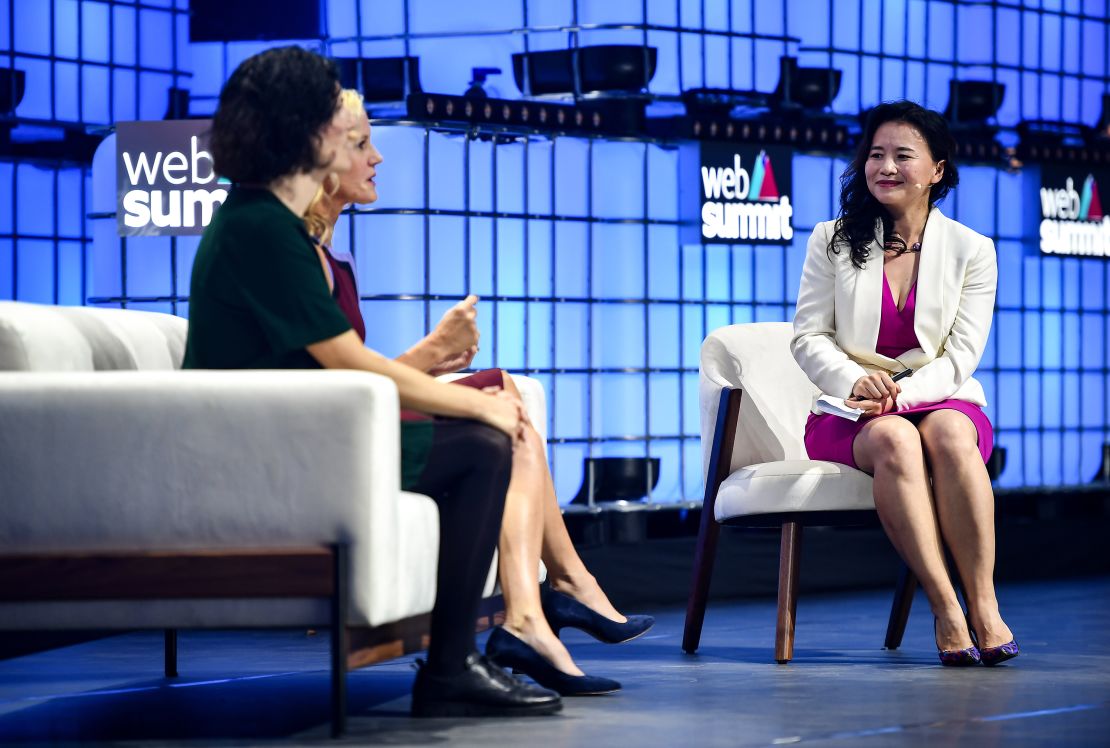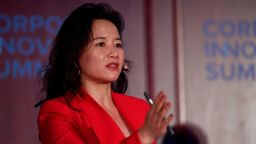Concerns are growing for Australian TV host Cheng Lei, who has been detained in China for nearly two years, following an interview with her partner in which he claimed authorities had cut her access to embassy officials and tightened her food supply.
Cheng, a former business anchor for China’s state broadcaster CGTN and mother of two, is accused of illegally supplying state secrets overseas, a charge that carries a possible sentence of between five years to life in prison.
She has been in custody since August 2020 and her original detention came amid rapidly worsening ties between Canberra and Beijing.
Her partner Nick Coyle, the outgoing head of the China-Australia Chamber of Commerce, told CNN affiliate Sky News Australia regular consular visits have been suspended “indefinitely,” ostensibly due to Covid-19 restrictions in Beijing.
“I find that unacceptable,” Coyle said in an interview published Thursday. “These monthly consular visits have literally been what’s kept her going for 20 months. She’s been able to make no phone calls with anybody, she’s had maybe three visits from her lawyer to prepare for the trial. She’s not had one phone call with family or her children. Nothing.”
According to Coyle, described by Sky News Australia as Cheng’s longtime boyfriend, consular officials last saw Cheng on April 30 and her family doesn’t know when they’ll restart.
Coyle also said there were serious concerns for Cheng’s health, which has “been an issue all through the 21 months of her detention.”
“Fortunately we’re dealing with about the strongest person I know, mentally, emotionally, but there have been difficult health challenges along the way,” he said.
According to Coyle, Cheng’s health issues are being exacerbated by an inadequate prison diet. “There were excuses given because of Covid and food restrictions. Now, there have been no food restrictions in Beijing, I talk to people there literally every day,” he said. “So the idea that the detention center couldn’t get adequate food is just not acceptable.”
Chinese authorities have not revealed details of the allegations against Cheng and observers have raised concerns over the secretive court process.
In March, Australia’s ambassador to China Graham Fletcher was denied entry to the start of Cheng’s trial in Beijing, a move he called “deeply concerning.”
“We can have no confidence in the validity of a process which is conducted in secret,” he said, adding that Australia had no information about the charges or allegations against Cheng. “That is part of the reason why we’re so concerned because we have no basis on which to understand why she’s been detained.”

Cases related to national security are typically tried behind closed doors in China. But the lack of transparency in Cheng’s case against the backdrop of deteriorating relations between China and Australia has prompted concerns from analysts that the charges may be politically motivated.
Coyle told Sky News Australia that Cheng was somebody “who wasn’t involved in politics.”
“The idea she was focusing on the political issues in Australia and China – she wasn’t. She’s a straight up business reporter,” he said, adding that the nature of her work in the business world meant she wasn’t pursuing anything that would be considered politically sensitive.
“It doesn’t make any sense to me. It never has,” he said.
In her spare time, Cheng was very active in the Australian community in Beijing. Asked if that put a “target” on her back, Coyle said, “Who knows, I mean, she was extremely giving of her time to the Australian community.”
Cheng’s two children are being cared for by their grandmother in Melbourne, the Australian Broadcasting Corporation (ABC) reported last year.
Coyle said the children are “dealing with things as well as they can” but “that’s even more reason why she needs to be back. It’s not about me, it’s about her and her kids.”
“I really feel for her mom and dad. They have gone through hell as well through this. It’s awful,” he said.


